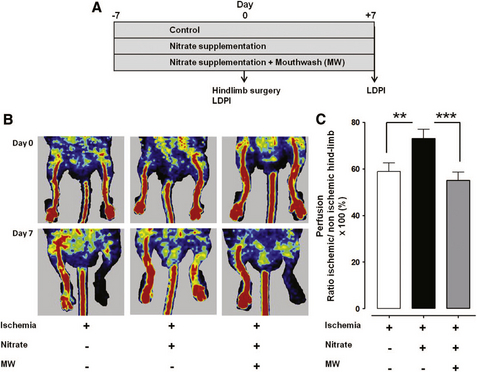Dietary Nitrate Supplementation Improves Revascularization in Chronic Ischemia
Hendgen-Cotta UB, Luedike P, Totzeck M, et al (Univ Hosp Düsseldorf, Germany; et al) Circulation 126:1983-1992, 2012§
M.A. Corriere, MD, MS
Evidence Ranking
D
Expert Rating
2




